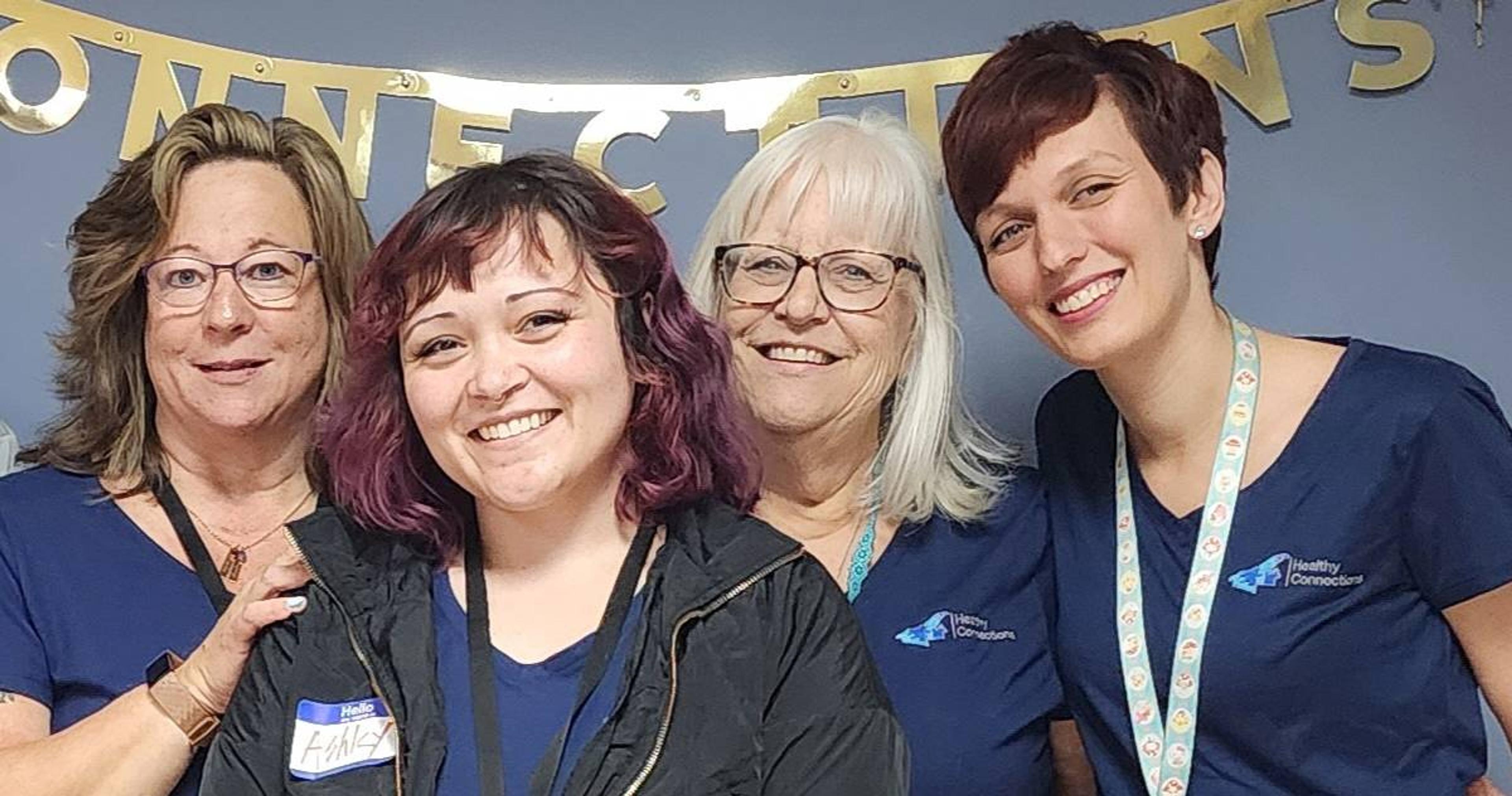First Step’s Improved Crisis Helpline Helps Pave the Way for Organization’s Much-Needed Second Domestic and Sexual Assault Shelter in Detroit
Jake Newby
| 5 min read
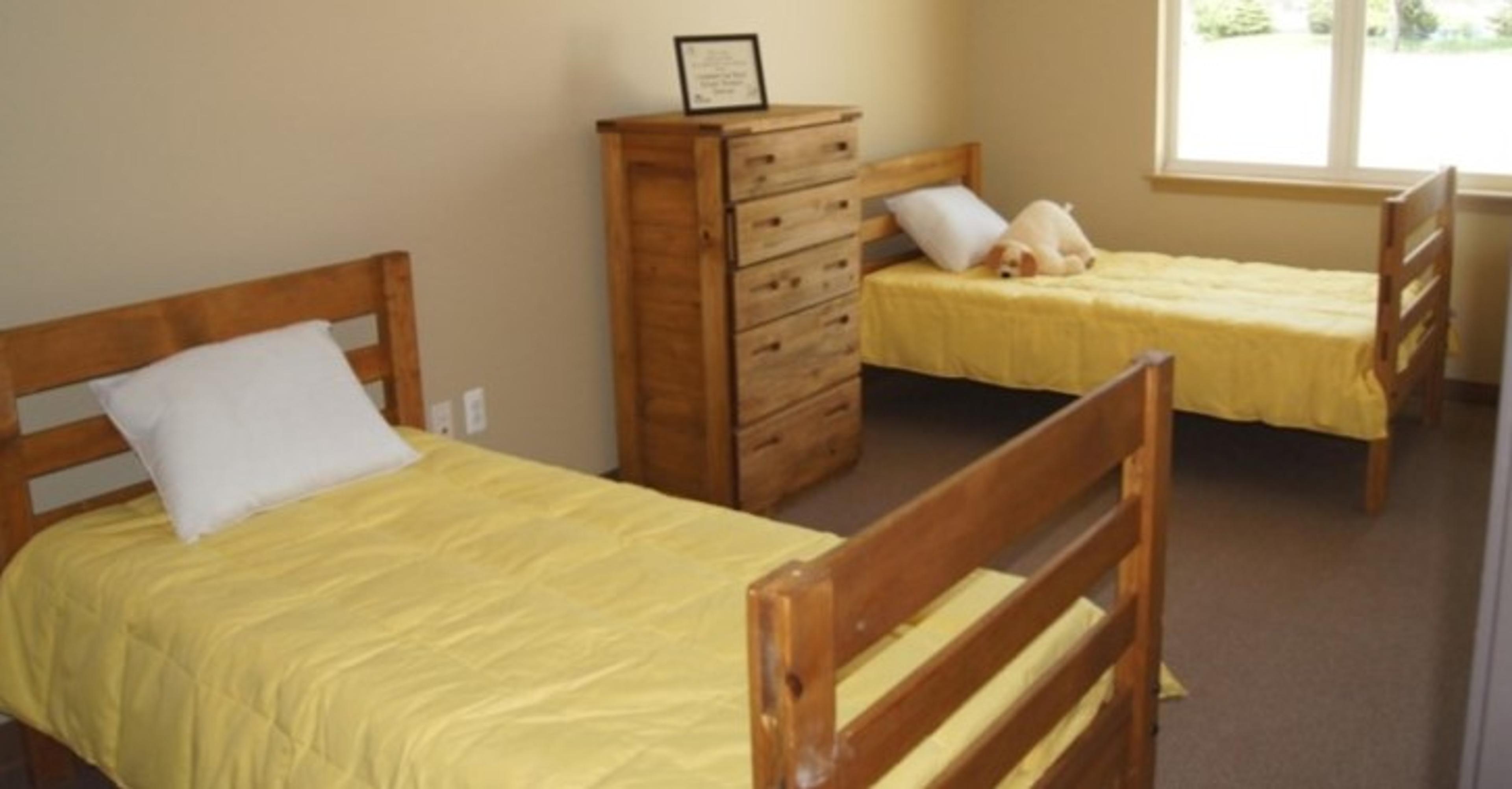
It’s impossible for First Step to serve more than 7,000 survivors of domestic and sexual violence annually without its 24/7 crisis helpline. Shelter, counseling and other key services for Wayne County survivors are facilitated through that first phone call. It’s quite literally the first step many Detroit-area women, children and men can make to escape their situations and find peace.
Call volume has rapidly increased over the years for First Step, a non-profit organization that’s worked to build safer communities in Wayne County since 1978. Knowing how crucial its 24/7 helpline is in creating positive outcomes for survivors, First Step knew it needed more resources to support the helpline and the crisis intervention team staff that run it.
First Step Executive Director Lori Kitchen-Buschel said a recent Blue Cross Blue Shield of Michigan (BCBSM) grant of $50,000 will allow First Step to integrate an advanced technology phone system, as well as hire additional dedicated employees to help run and operate it as a “seed investment”.
The Wildix telecommunications operating system should help First Step reach more survivors of domestic and sexual assault and field their calls in a more thoughtful, comprehensive way.
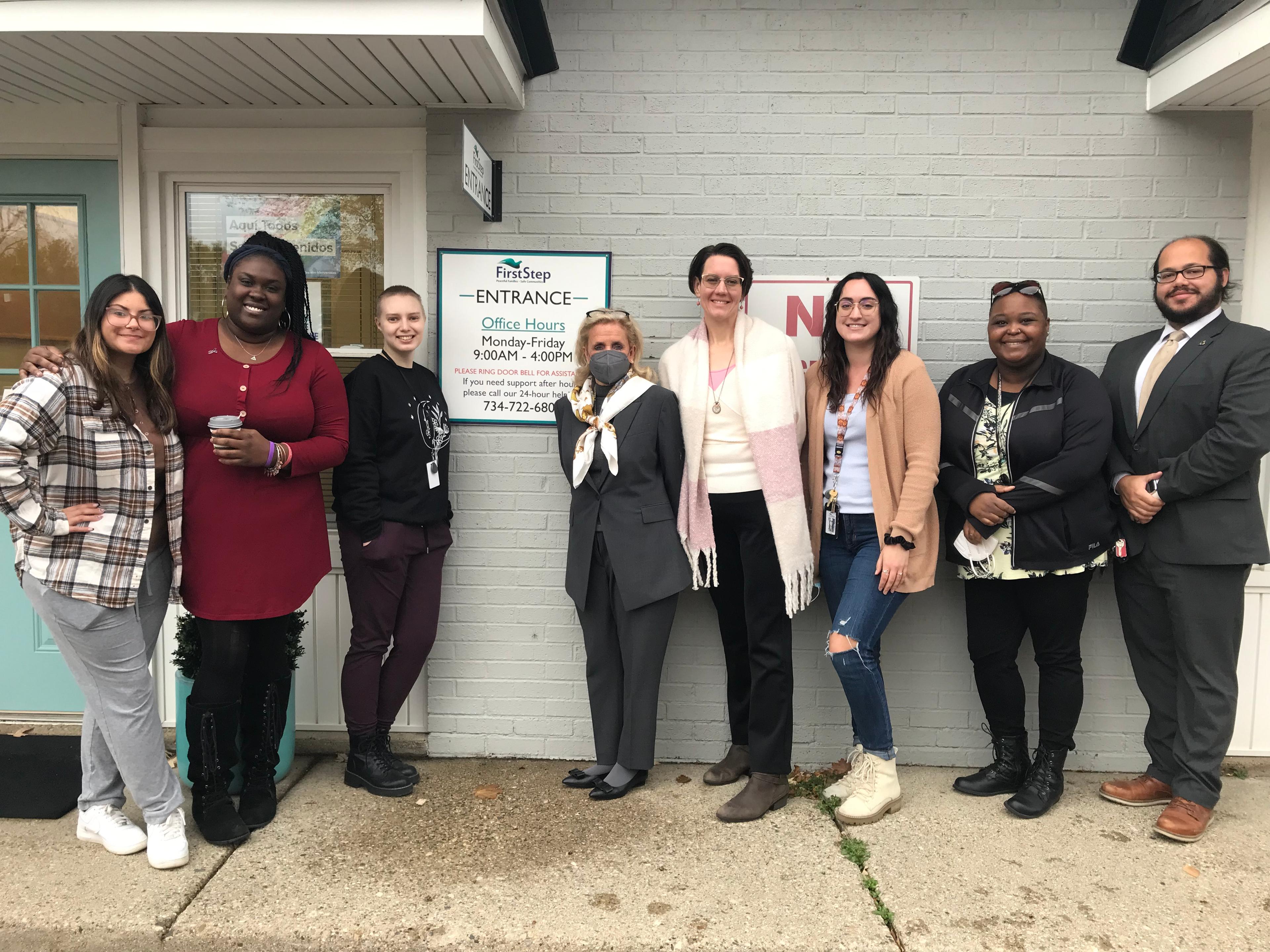
“[The new phone system] allows calls to be answered from anywhere across the agency, … which provides so much more capacity and so much more efficiency.”
The enhanced operating system will also add a text-to-chat program, which should be another gamechanger.
“We know there’s a lot of people who can’t call or who don’t want to call or who don’t feel safe calling, or somebody might be in the room, and they can’t call,” Kitchen-Buschel added. “That text feature is really important.”
‘This is a statewide capacity challenge that needs to be solved.’
First Step’s safe home and shelter is in Wayne. It’s uncommon for sexual and domestic abuse agencies to run multiple shelters, because pouring enough resources into one location that allows it to function adequately is difficult enough. Recognizing the immense need to have a shelter inside the Detroit city limits, First Step will renovate a two-wing former hospital suite inside of Detroit’s Samaritan Center and turn it into the organization’s second shelter. Of the 7,000 survivors First Step serves a year, Kitchen-Buschel estimates between 1,000 and 2,000 of them call and come from Detroit.
“There’s been a huge gap of services and beds inside the city limits,” Kitchen-Buschel said. “We see about 200 families a month calling us for shelter, that we can’t shelter, because we’re always full. There is never an open bed for more than a couple of hours at our shelter.”
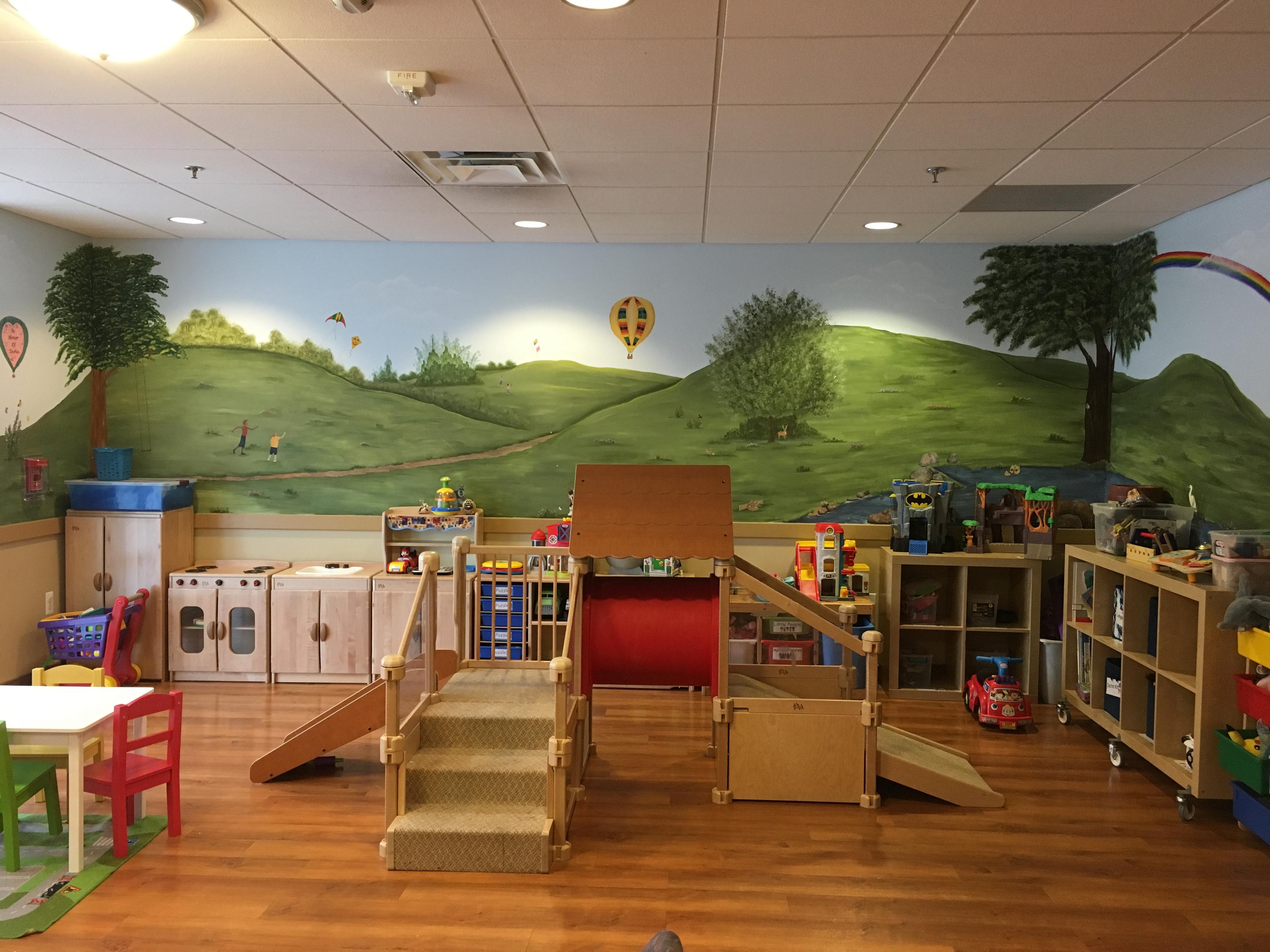
Other southeast Michigan agencies are seeing the same issue, according to Kitchen-Buschel, who calls it a “statewide capacity challenge that needs to be solved.” She says Detroit-based survivors are even calling organizations in Ohio and Indiana in search of shelter because of the void in Detroit.
Located on the city’s east side, the second shelter in the Samaritan Center will have between 65-85 beds, depending on the size of families that come in. Kitchen-Buschel said the organization’s endeavor to open a second shelter is made possible because BCBSM’s investment has allowed it to increase crisis intervention capacity. Everything First Step does revolves around its helpline, including shelter expansion.
“The technology we’ve invested in thanks to the support from Blue Cross Blue Shield of Michigan allows us to quickly increase our capacity for the calls, for the messages, for the texts that are going to come through as we go through this growth cycle,’ she said. “We will be able to do our staffing across the agency – and have more people trained and available to support that crisis line as capacity goes up – because now the crisis line is not held in one place with one room and with two phones, which used to be the only way crisis calls could be received.
“It just is going to maximize our ability to support survivors quicker, more efficiently and manage the growth that we’re undergoing with the opening of the second shelter,” Kitchen-Buschel added.
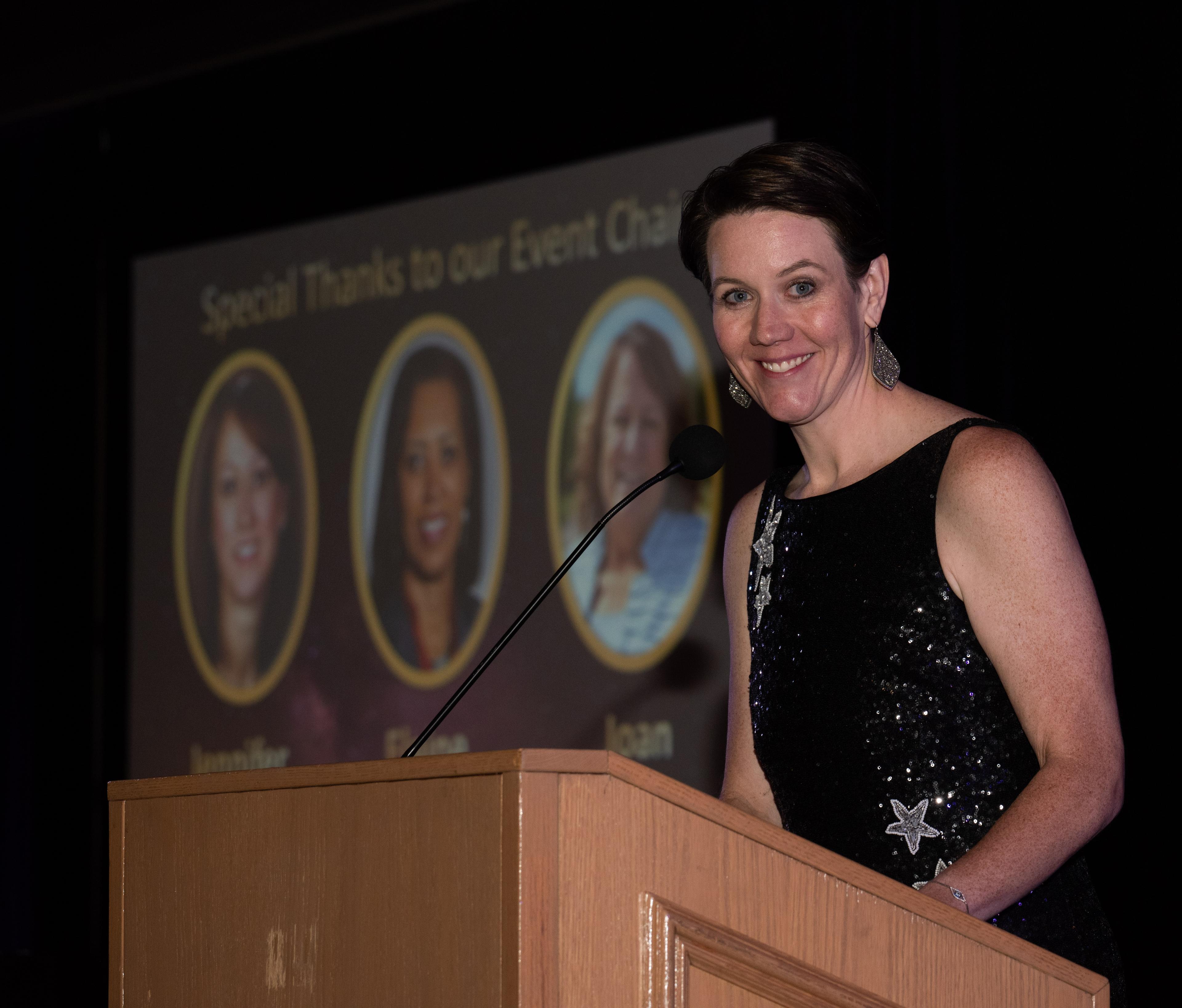
‘My passion point is safety and security, especially for women and children’
Piloting, testing and troubleshooting for Wildix occurred all summer in anticipation of the system’s official launch, Kitchen-Buschel said, which will happen soon. A survivor of sexual assault herself, Kitchen-Buschel sees her involvement in First Step and its continued evolution as a “perfect marriage” of her passion, skills and talent.
“My journey and my path have honed me and kept me in a place where my passion point is safety and security, especially for women and children,” Kitchen-Buschel said. “I am a former foster mom and so I’ve seen how those systems interact with everything and how unsafe kids can be. I have also had my own history with sexual assault, I am a survivor myself.”
The gift Kitchen-Buschel continues to unwrap each day is the commitment and support First Step receives from its Wayne County neighbors. She can see that people value First Step’s mission and recognize the organization as an integral part of their community. Down the line when First Step’s second shelter opens, she hopes its new Detroit neighbors show the organization that same warmth.
“I am touched every day at the depth of love and commitment this community has for its agency,” she said. “We know we can count on the community and that fulfills me greatly.”
Photo credit: First Step




